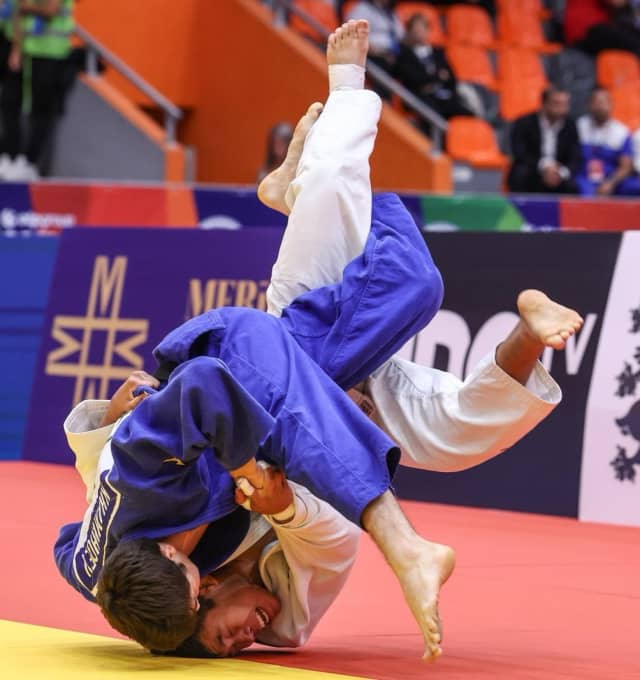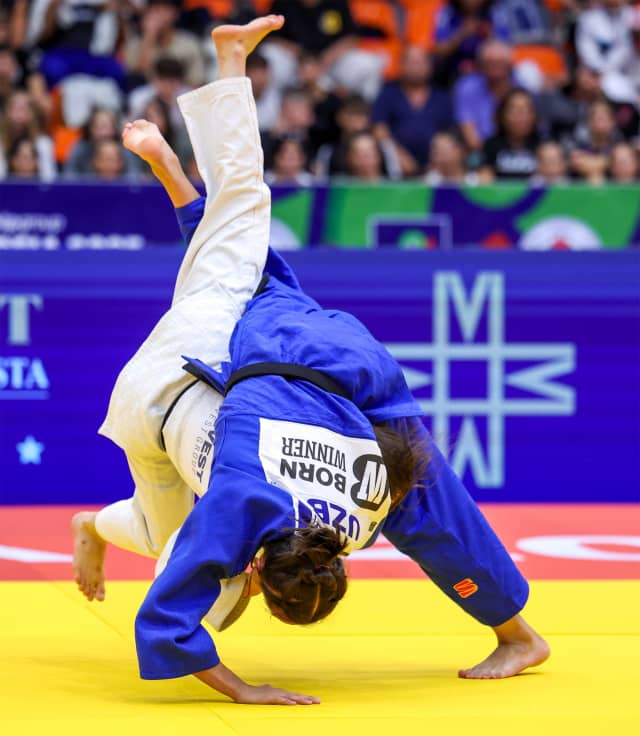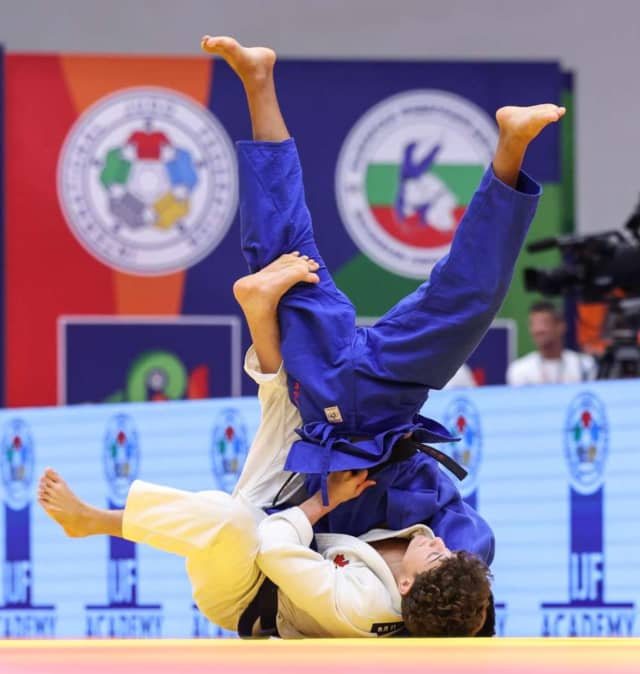The opening two days of the OTP Group World Cadet Championships Sofia 2025 has displayed a remarkable level of judo, demonstrating that attacking, positive judo is unmatched.
The first day of competition highlighted the speed, agility and athleticism of the lightest weight categories, presenting an array of diverse scoring techniques. The Uzbekistan team led the way on day 1, and incredibly Dilafruz Boltaboeva claimed the gold medal in the women’s -40 kg category without conceding a single score or penalty; in doing so winning each of her five contests with a positive score. This feat was repeated in the women’s -44 kg category, with Nadezhda Mishenkina (IJF) proving simply unstoppable. Coached by Olympic medallist Tea Donguzashvili, Mishenkina spent just 6 minutes and 4 seconds on the tatami en-route to her maiden cadet world title, with her trademark juji-gatame.
Mishenkina’s dominance in ne-waza was replicated on the second day of competition, with Brazil’s Clarice Ribeiro writing history to secure her third consecutive cadet world title. Ribeiro worked past Japan’s Tomita in her opening contest, throwing with ko-soto-gari for yuko. This was the only match of her day that would go beyond 2 minutes, as she managed to win her next 4 contests, including the final, with fierce and controlled ne-waza. It was extremely impressive to watch these young women demonstrate such proficiency and relentlessness in ne-waza.
While much of the women’s success was characterised by dominance in ne-waza, Uzbekistan’s gold medallist in the -55 kg category Khushnudbek Burkhonov personified versatility and class. After being pushed by Kazakhstan’s Yelemes in his opening contest, Burkhonov needed less than 90 seconds in his remaining four contests, dispatching all of his opponents for ippon. Highlighted by his spectacular 7-second quarter-final victory, he wasted no time, throwing and submitting Italian Matteo Gualandi in the opening exchange of the final. With champion countrymen such as Davlat Bobonov and Muzaffarbek Turoboyev to idolise, the sky is the limit for him.
The final of the -50 kg category was a terrific representation of the fearlessness of these young judoka and the positivity the new rules have encouraged. In the opening exchanges, Brazil’s Melo threw for yuko, jolting Uzbekistan’s Khushnud Sultanov into all-out attack mode, scoring 3 times with his specialist sutemi-waza techniques. Seldom do we see four positive throwing scores in the final of a world championship!
To cap an exciting second day of competition, arguably the most impressive display of judo thus far was demonstrated by -66 kg fighter Rakhim Khamkoev (IJF). Coached by three-time world silver medallist Mikhail Pulyaev, in a performance comparable to the dominance of his senior compatriot Timur Arbuzov in Budapest, Khamkoev failed to hear the buzzer all day, as he threw all five of his opponents for ippon with a variety of dynamic and explosive nage-waza techniques. There is no doubt, from a deep stable of extraordinary talent, he will be one to watch in the future.
Over the years, we have watched many cadet world champions including Naohisa Takato, Jessica Klimkait, Lasha Bekauri and Diyora Keldiyorova blossom into champions at world and Olympic level. As we watch on over the remaining days of the OTP Group World Cadet Championships Sofia 2025, we remain optimistic and certain that the future of judo is in very capable hands.



